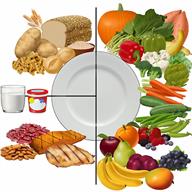ThisisPatientEngagementcontent
Exercising to Lose Weight
Learn more about our Patient Engagement products now! Turn your patients into active participants in their healthcare by giving them easy access to the same evidence-based information you trust – but delivered in an easy-to-understand format.
Getting regular exercise is important for everyone. It is especially important if you are overweight. Being overweight increases your risk of heart disease, stroke, diabetes, high blood pressure, and several types of cancer. Exercising, and reducing the calories you consume, can help you lose weight and improve fitness and health.
Exercise can be moderate or vigorous intensity. To lose weight, most people need to do a certain amount of moderate or vigorous-intensity exercise each week.
Moderate-intensity exercise

Moderate-intensity exercise is any activity that gets you moving enough to burn at least three times more energy (calories) than if you were sitting.
Examples of moderate exercise include:Most people should get at least 150 minutes of moderate-intensity exercise a week to maintain their body weight.
Vigorous-intensity exercise
Vigorous-intensity exercise is any activity that gets you moving enough to burn at least six times more calories than if you were sitting. When you exercise at this intensity, you should be working hard enough that you are not able to carry on a conversation.
Examples of vigorous exercise include:Most people should get at least 75 minutes a week of vigorous exercise to maintain their body weight.
Talk to your health care provider about how much exercise you need and what types of activities are safe for you.
Nutrition

Activity
These symptoms may represent a serious problem that is an emergency. Do not wait to see if the symptoms will go away. Get medical help right away. Call your local emergency services (911 in the U.S.). Do not drive yourself to the hospital.
This information is not intended to replace advice given to you by your health care provider. Make sure you discuss any questions you have with your health care provider.
Cookies are used by this site. To decline or learn more, visit our cookie notice.
Copyright © 2025 Elsevier, its licensors, and contributors. All rights are reserved, including those for text and data mining, AI training, and similar technologies.